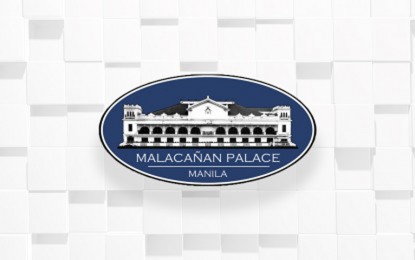[5.13] PBBM, RCEP 관세 약속 이행 승인
컨텐츠 정보
- 21,166 조회
본문
MANILA – "Ferdinand R. Marcos Jr." 회장 역내포괄적경제동반자협정(RCEP)에 따른 필리핀의 관세 약속 이행을 승인했습니다.
"Marcos"는 5월 7일 행정 명령(EO) 25에 서명하여 RCEP에 따라 국가의 관세 약속 일정을 운영하기 위한 국가경제개발청(NEDA) 이사회의 권고를 승인했습니다.
그는 EO 25에서 "RCEP 협정에 따른 필리핀 관세 일정표를 충실히 준수하기 위해 특정 수입품에 대한 수입관세율을 수정할 필요가 있다"고 말했다.
공화국법 10863 또는 관세 현대화 및 관세법은 대통령이 NEDA의 권고에 따라 대외 무역을 수행하고 촉진하기 위해 필요하거나 적절한 경우 분류 및 기타 수입 제한에 필요한 변경을 포함하여 수입 관세를 수정해야 한다고 규정합니다. 다른 나라들과.
EO 25에 따라 관세 차등이 적용되는 RCEP 회원국의 모든 원산지 상품은 원산지 증명 제출 및 협정에 따른 모든 해당 요건 준수에 따라 규정된 세율이 부과됩니다.
이 명령은 "소비 또는 관세 영역으로의 도입을 위해 필리핀의 창고 또는 자유 구역에 들어가거나 반출되는" 항목을 포함합니다.
EO 25는 "관세 위원회는 RA No. 10863의 섹션 1100에 따라 이 명령이 적용되는 특정 상품의 적용 가능한 세율을 확인하기 위해 상품의 관세 분류에 대한 사전 결정을 발행하도록 요청할 수 있습니다"라고 말했습니다.
관세 차이가 적용되는 원산지 상품은 수출 당사국이 RCEP 원산지 국가인 경우 수출 당사국의 원산지 상품에 적용되는 특혜 관세 대우를 받을 자격이 있습니다.
"원산지 상품의 수출 당사국이 RCEP 원산지로 설정되지 않은 경우, 수출 당사국에서 해당 상품의 생산에 사용된 원산지 재료의 최고 가치를 제공한 당사국이 RCEP 원산지로 간주됩니다. " 주문을 읽었습니다.
"원산지 상품은 RCEP 원산지 상품에 적용되는 특혜관세대우를 받을 수 있습니다."
EO 25에 따르면, 필리핀은 수입자가 필리핀이 동일한 원산지 상품에 적용하는 최고 관세율로 특혜관세대우를 청구할 수 있도록 허용할 수 있습니다. 단, 수입자가 그러한 주장을 증명할 수 있는 경우에 한합니다.
EO 25의 어떠한 내용도 필리핀 정부가 수입 급증 또는 불공정 무역 관행을 방지하기 위해 법률, RCEP 협정 및 기타 관련 국제 협정에 규정된 모든 무역 구제 조치에 대한 상환 청구권을 행사하는 것을 금지하지 않습니다.
EO 25는 관보 또는 일반 신문에 완전히 게재된 후 6월 2일에 발효됩니다.
RCEP는 현대적이고 포괄적이며 고품질의 상호 이익이 되는 경제 파트너십 프레임워크를 구축하는 것을 목표로 합니다. 관세 및 비관세 장벽, 제한 및 차별적 조치를 철폐하여 상품 및 서비스 무역을 자유화하고 촉진합니다. 자유롭고 촉진적이며 경쟁적인 투자 환경을 조성합니다.
RCEP 참가국은 아세안(ASEAN) 10개 회원국과 FTA에서 탈퇴한 인도를 제외한 자유무역협정 상대국으로 구성된다.
RCEP의 일부인 ASEAN+1 파트너에는 호주, 뉴질랜드, 중국, 일본 및 한국이 포함됩니다.
상원은 지난 2월 RCEP 비준에 동의했다. RCEP 참가국들이 2020년 11월 협상을 타결한 지 2년 후인 2023년 11월 21일.
필리핀은 15개국 중 마지막으로 협정을 비준했다. (PNA)
This is the Original Article from PNA NEWS
[5.13] PBBM okays implementation of RCEP tariff commitments
MANILA – President "Ferdinand R. Marcos Jr." has approved the implementation of the Philippines' tariff commitments under the Regional Comprehensive Economic Partnership (RCEP).
"Marcos"signed Executive Order (EO) 25 on May 7, approving the National Economic and Development Authority (NEDA) Board's recommendation to operationalize the country's schedule of tariff commitments under RCEP.
"There is a need to modify the rates of import duty on certain imported articles in order to faithfully comply with the Philippine Schedule of Tariff Commitments under the RCEP Agreement," he said in EO 25.
Republic Act 10863, or the Customs Modernization and Tariff Act, provides that the President, upon the NEDA's recommendation, shall modify import duties, including any necessary change in classification and other import restrictions, as required or appropriate, to carry out and promote foreign trade with other countries.
Under EO 25, all originating goods of RCEP member countries that are subject to tariff differentials shall be levied the prescribed rates of duty, subject to the submission of a Proof of Origin and compliance with all applicable requirements under the agreement.
The order covers those that "are entered into or withdrawn from warehouses or free zones in the Philippines for consumption or introduction to the customs territory."
"The Tariff Commission may be requested to issue advance rulings on tariff classification of goods to confirm the applicable rates of duty of particular goods subject of this Order, consistent with Section 1100 of RA No. 10863," EO 25 said.
Originating goods subject to tariff differentials shall be eligible for preferential tariff treatment applicable to the originating goods of the exporting Party, provided that the exporting Party is the RCEP country of origin.
"If the exporting Party of the originating goods is not established to be the RCEP country of origin, the Party that contributed the highest value of originating materials used in the production of those goods in the exporting Party shall be deemed the RCEP country of origin," the order read.
"The originating goods shall be eligible for preferential tariff treatment applicable to the originating goods of the RCEP country of origin."
According to EO 25, the Philippines may allow an importer to make a claim for preferential tariff treatment at the highest rate of customs duty that the Philippines applies to the same originating goods, including those from any parties contributing originating materials used in the production of such goods, provided that the importer can prove such claim.
Nothing in EO 25 shall preclude the Philippine government from invoking its right of recourse to all trade remedy measures provided for in its laws, the RCEP Agreement, and other relevant international agreements, to ensure the prevention of import surges or unfair trade practices.
EO 25 takes effect on June 2 after its complete publication in the Official Gazette or a newspaper of general circulation.
The RCEP aims to establish a modern, comprehensive, high-quality, and mutually beneficial economic partnership framework; liberalize and facilitate trade in goods and services through the elimination of tariff and non-tariff barriers, as well as restrictions and discriminatory measures; and create a liberal, facilitative, and competitive investment environment.
The RCEP participating countries are composed of the 10 Association of Southeast Asian Nations (ASEAN) member nations and its free trade agreement partners, except India, which pulled out its participation from the agreement.
ASEAN+1 partners that are part of the RCEP include Australia, New Zealand, China, Japan, and South Korea.
The Senate concurred in the RCEP ratification on Feb. 21, 2023, two years after the RCEP participating countries concluded the negotiations in November 2020.
The Philippines was the last among 15 countries to ratify the agreement. (PNA)
관련자료
-
이전
-
다음


